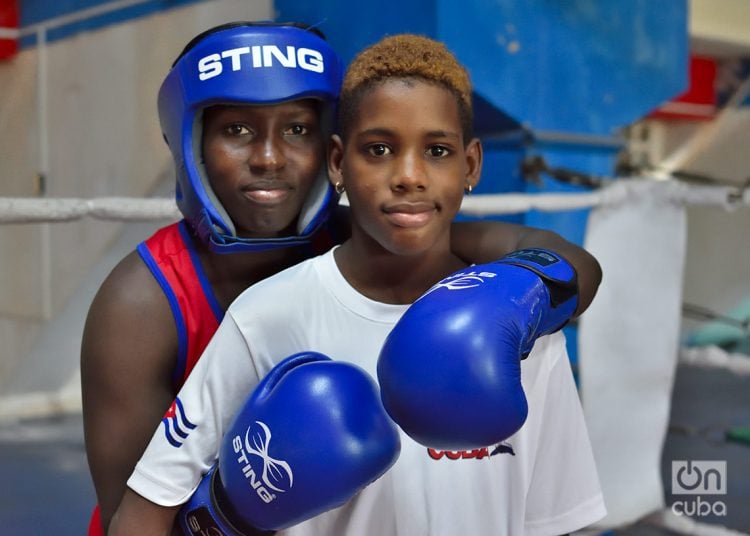The name Yakelín Estornell is not unknown to Cuban sports fans. For nearly a decade, the Guantánamo woman was one of the main figures of the national women’s wrestling team and her face was a common sight in the island’s delegations in tournaments of her discipline and multi-sport events.
In her achievements as a wrestler, the girl from Guaso won medals at the Central American and continental level, and also in international competitions such as the Baku Grand Prix. On the mats she shone first in the 58 kilograms and then in the 62, although het getting on the Olympic and world podium was still pending.
Shortly after her retirement, and with nearly four decades in the calendar, Estornell has returned for her revenge. Only now her division is 75 kilograms, and she no longer competes on the mat or deals with tackles and imbalances, but rather she fights in the ring with hooks, jabs and straights.
“I had already retired from wrestling and was working at the EIDE [Sports Initiation School] in Guantánamo, but they told me that women’s boxing was going to start and I was interested. I said to myself, why not? If I still feel good physically,” she tells OnCuba.
Her history in boxing seems like something out of a movie. Unlike other girls, who had already practiced or were still practicing this sport when its officialization in Cuba for women was announced, Yakelín had never entered a ring before. However, a few months later she is already one of the leaders of the island’s nascent women’s team.
“As a child I was always fighting, even with boys, but the first time I got into a ring was now, when I was training for the national team,” she says. Despite this, today she is one of the three Cuban medalists in the still recent Central American Games in San Salvador and she is currently competing in the Pan American Games in Santiago, Chile.
How did you go from coaching wrestling to the women’s national boxing team?
I watched boxing and I liked it. But I had never done training. My sport was wrestling, which was what I continued with in the EIDE after I retired. However, when they told me that women’s boxing was going to start, I wanted to try and see how it went, as a new experience.
At EIDE, when I was working, I stayed active, I did physicals with my students and I felt fit. That gave me the motivation to get into boxing. I spent a short time training and working, preparing myself physically, and then they did a training camp in Havana in which I participated. There was a limit to pick the 12 boxers and, since I won my fight, they chose me to be part of the national preselection.
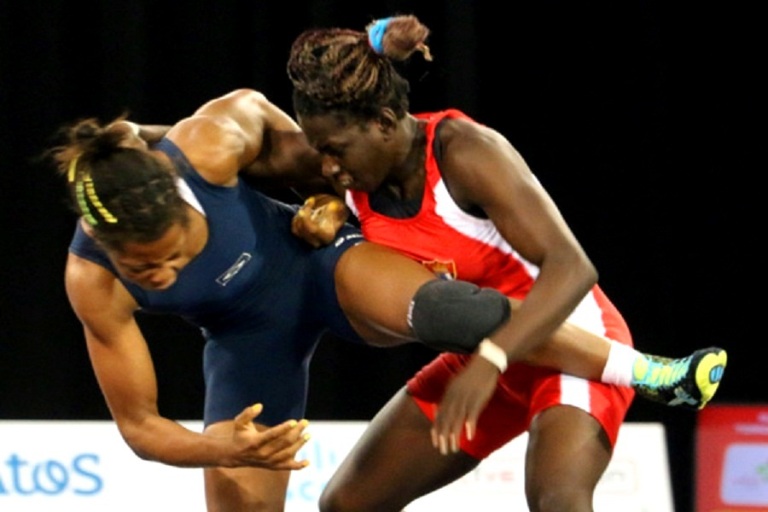
How has the process of adaptation to boxing been? Which of the two sports do you find more demanding?
Although both are combat sports, boxing has nothing to do with wrestling, neither in the techniques nor in the training. They are only alike in that you have to defeat your opponent. For me it has been almost like starting from scratch.
I had a boyfriend who was a boxer and we were always debating what was stronger, wrestling or boxing, and I always said wrestling, and he said boxing. But now that I’m practicing it, I have to agree with him.
Boxing is stronger, because the preparation is stronger, more intense. And as a sport it is very dynamic, very demanding. You always have to be at your best. Now I am experiencing it firsthand, and I tell you that it really is like that.
How do you face that demand after a period outside of active sports and already close to 40?
Thanks to the preparation I have and the years in high-performance sports, I’m still in shape. Thank God I have not had any injuries and I feel good even though I am one of the oldest on the team. Being so cannot be a justification or an impediment.
The girls tell me: “but Yakelín, how can you?”, and I tell them that one cannot stop because of age, that it is in the mind, and that I feel as if I were 15 years old. I also tell them that they are younger than me and they cannot stop if I, who am older than them, doesn’t.
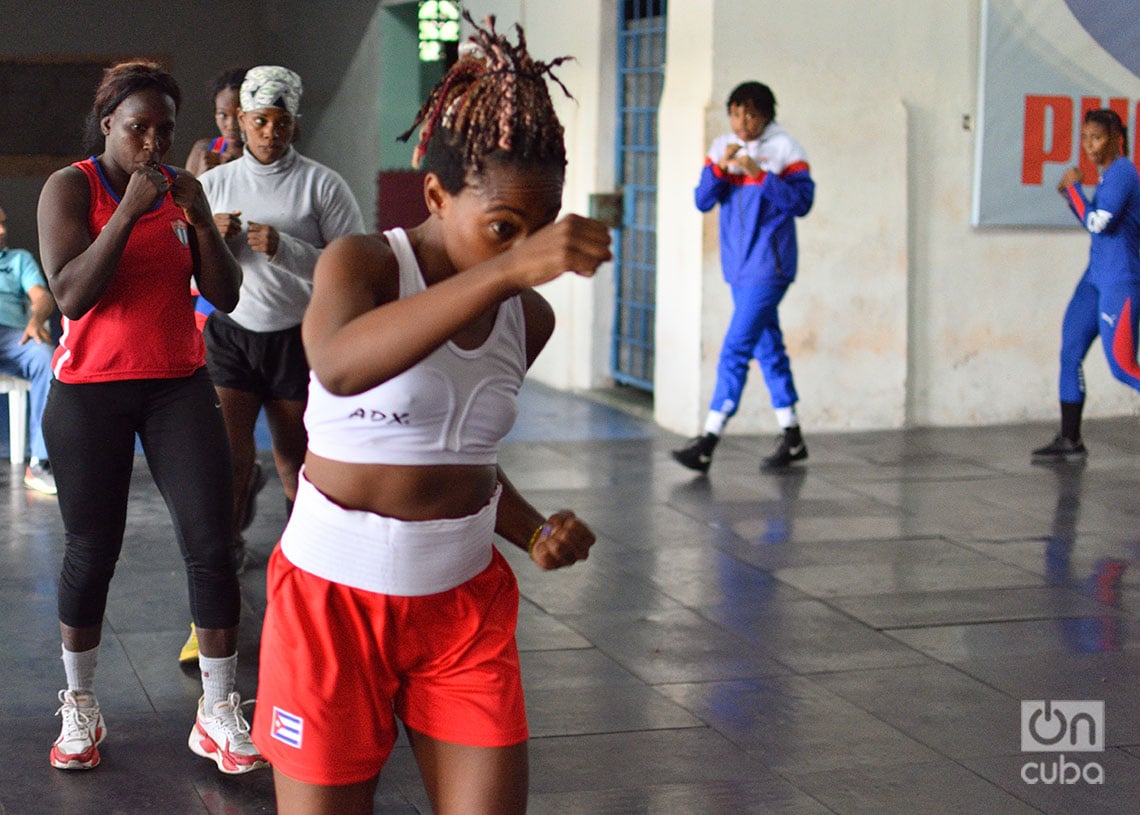
Do you have idols in boxing, perhaps among the Cuban champions?
Yes. My friends Julio César La Cruz and Arlen López. We have known each other for several years and I greatly admire them. And also young figures, like Fernando Arzola, who is doing very well, and whom I also admire. I hope they can continue to triumph and bring joy to the people of Cuba.
What has this return to active sports meant for you on a personal and family level?
I have a 13-year-old boy and it’s hard to be away from him. But the family supports me a lot. The child’s father and grandmother take care of him when I am here in Havana, and when I go to competitions. In addition, we stay in touch all the time, calling each other, sending messages on the phone. He even spent a few days with me on vacation while I continued training. But it’s difficult.
It’s difficult for my son to be there and me to be here, and when we talk he asks me when I’m going, because I spend months without going home. It’s a big sacrifice, but I have assumed it, as I assumed it before when I was in wrestling.
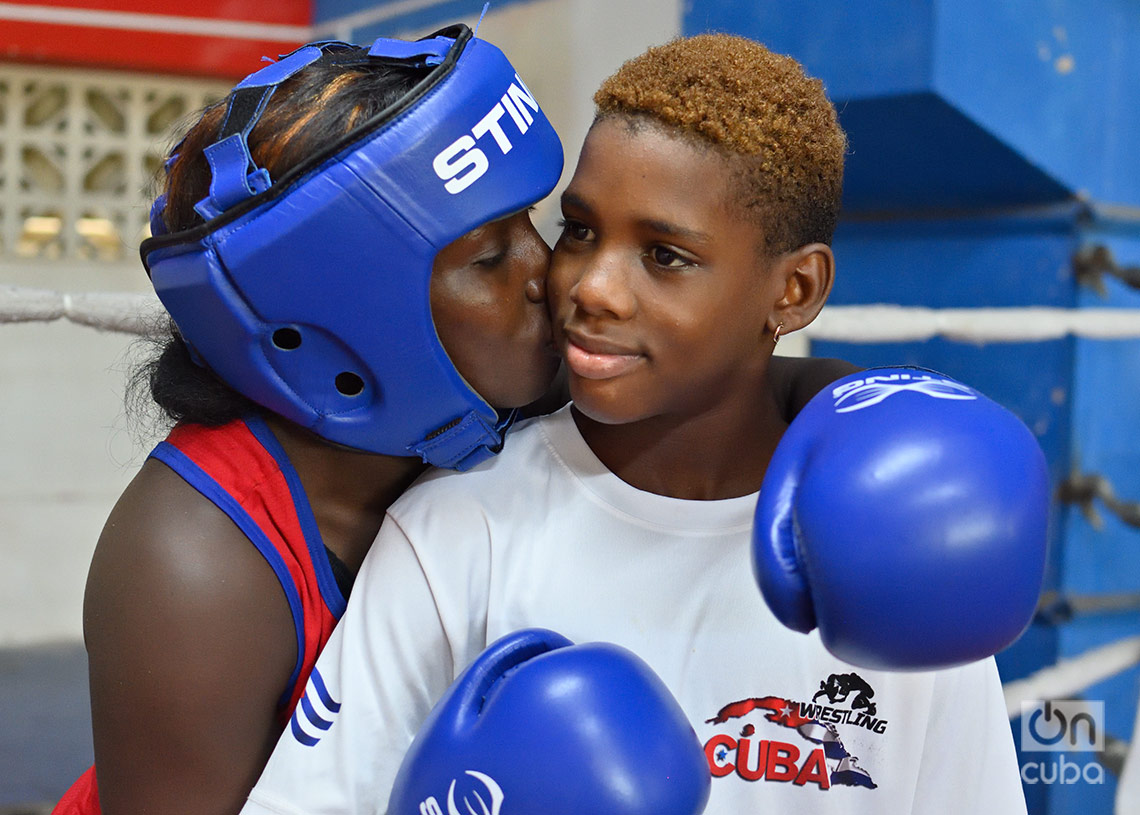
Why have you assumed that sacrifice?
I’ve taken it on for the future, so I know I can do it. Since I was little, I liked combat sports, and I was always motivated to be able to achieve success in sports, to win medals for Cuba, to be a world or Olympic champion if I had the opportunity, like so many great Cuban athletes.
In wrestling I was able to win medals at the Central American and Pan American levels, and in boxing I achieved bronze in San Salvador. But I would like more.
Did you expect that medal at the Central American Games?
At first I didn’t think I could win medals at the Central American Games, although we were preparing very hard. But we had only been training for a few months. Then, we went to the ALBA Games, where I had my first match at the international level, and that helped me get a better idea of my possibilities. I train hard and I strive every day to succeed in sport, and in that fight I gave it my all and I saw that it was possible.
The teachers told me that after that ALBA experience I could improve myself and achieve the Central American medal, that I could do that and more, and my mind was working in that direction. I focused on the goal of the medal and it came out. I would have liked to have had an even better result, but the bronze and qualification for the Pan American Games came out, and now I want to continue moving forward.
What are your next goals?
My goal is to qualify for the Olympic Games, because at my age I am almost at the end of my sporting career, which in Olympic boxing is up to 40 years old. And my goal is to continue training hard and strive to obtain my medal at the Pan American Games, and thus qualify for Paris.
My intention is to be on the team until the end of this cycle in 2024, and I’m giving my all to obtain that Olympic qualification. If I achieve it, that would be the most important thing in my sports career.
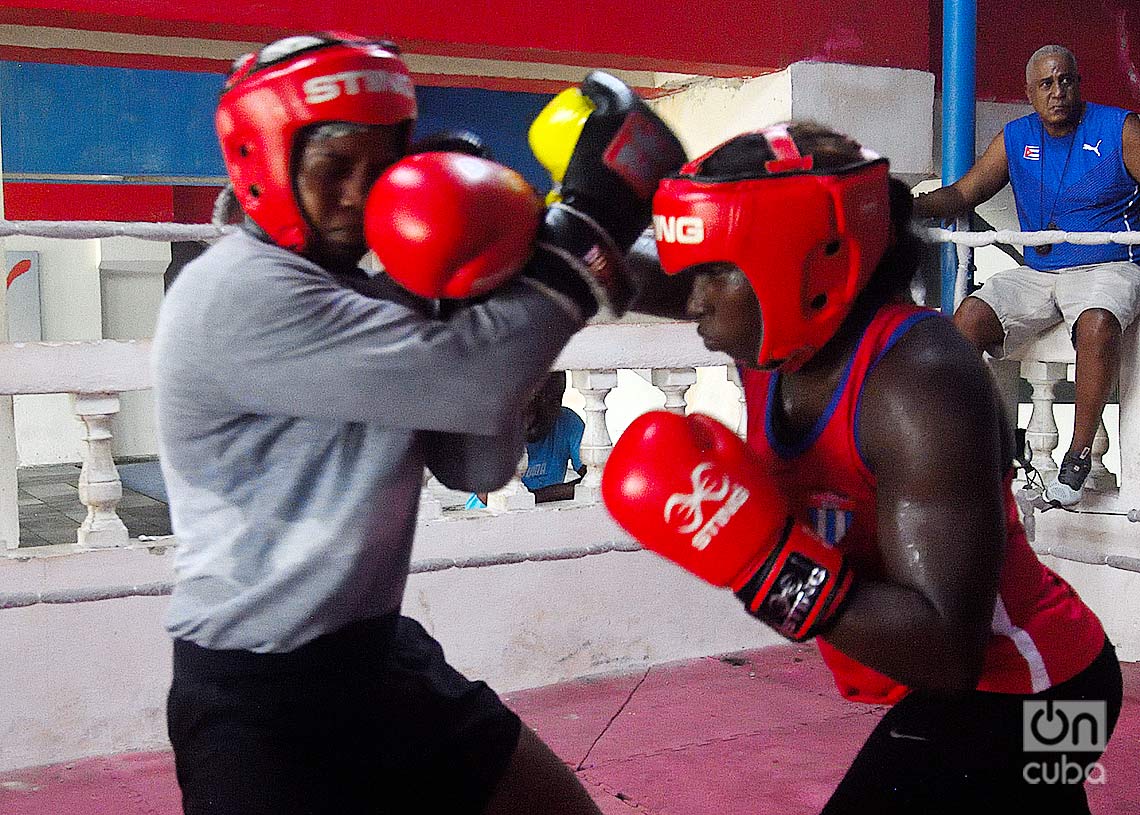
What do you think the national team and Cuban women’s boxing in general need to achieve better results?
There needs to be more girls, because there are still very few of us and that rivalry is important in sport. Among those that are there now, some are a little advanced, and others less so, and it would be good if the team’s enrollment could be expanded and to be able to have more competitive contact, more fights, inside and outside of Cuba, as we did now in France.
I think that can help us develop more, because here we train among ourselves, and although the teachers seek to change the dynamics of the training, it is not the same as training with more women, with other boxers of your weight, nor meeting and competing more.
But soon there should be a national championship and I hope that the team’s enrollment grows, that we can train independently ― because we have been training with the men’s junior team, who are more than us ― and that the practice of women’s boxing also grows throughout the country in order to have greater development.
What would you tell women who want to start boxing?
I would tell them that this sport is very hard, but if they like it they have to put in their determination and effort, because it is possible to get ahead. If they sacrifice and train hard, they can be champions in the future.
And I would also tell them that boxing does not make you less feminine, nor does it change the way you are, and it can help you a lot, to succeed in sport, win medals, and also to stay in shape and defend yourself.
Have you ever felt like you’ve been treated with prejudice for practicing a combat sport?
I don’t think I’ve ever been looked at badly when I was wrestling and now with boxing I haven’t had bad experiences with people on the street either. On the contrary.
It is true that there are people who still do not agree with women’s boxing, but there are also many other people who support us, and who follow our results. There are those who have even told us that they thought differently about us, and after seeing how we are and what we have done, they have changed their minds. And that is an encouragement to continue.
Even though you boxers are already becoming better known, do you think that Cuban women boxers need more visibility and support so that these prejudices can be left behind and better results achieved?
I think so. All of us are focused on training hard, on achieving the best results, and I think that all the support we can have will be very important so that conditions improve not only in the team, but also at the base, in the provinces, and that what we do is known. Let people know that Cuba has women boxers giving their all for the country.

